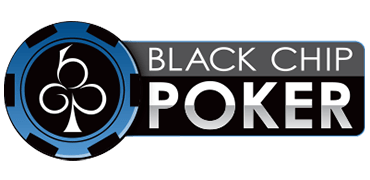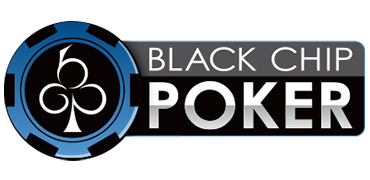(Editor's Note: This interview took place in February of 2022)
– Yuri, hello, let me tell you your last name.
– Haha – it is Dzivielevski (Ziv-E-Le-Ski). This is a Polish surname, and there it would read Dzhivilevsky (Div-E-Le-Ski).
– Do you have Polish roots?
– Yes, Grandma is from there. But my parents and I were already born in Brazil, so there is almost nothing connecting me with Poland.
– A few months ago you became a partypoker ambassador. You've been playing poker for a very long time, have you dreamed of something like this, or can we say that you got this role by chance?
– 12 years ago, when I started playing, a contract with a room was the ultimate dream for any player. But I played micro-stakes and couldn’t even seriously think about sponsorship. Then streamers appeared and getting a contract became even more difficult. It is obvious that the rooms are interested in streamers and public figures. I always wanted this, but I understood that it was almost impossible. And now, when partypoker suddenly offered me a deal, I was very happy and immediately agreed.
– You have taken first place in online player rankings many times. The first time this happened was a long time ago. Tell us how you started playing poker.
– I started playing very early, at the age of 16. But it was more of a learning experience. I started playing for real money when I turned 18 and became a professional almost immediately. We had a very poor family, so I started playing to support my parents. I first rose to first place in the PocketFives ranking in 2014. What's funny is that I didn’t strive for this at all, because I never went to this site, my nicknames weren’t even there. But then I had a very successful period, in six months I won a lot and decided to check where I stood. And after the next update, I saw myself in first place, I didn’t even believe it right away.
– How did your online handle – theNERDguy – come about?
-- When I was young, I was into graffiti; we had a team called the Nerds. When I needed to come up with a poker nickname at 18, I couldn’t find anything better. It turned out funny, I don't look like a typical nerd, but the nickname suits me because I love to study.
– My wife is also from Brazil, and her family was very worried when they found out what I was doing. How did your loved ones react when you announced that you would become a professional?
– At first, I treated the game as entertainment. I liked reading articles about poker and learning something new, but I didn’t consider the game as a way to earn money. Just playing with friends. And when I turned 18, my parents no longer had a choice, because I became the main breadwinner of the family. Then they fell in love with poker, but still not completely. Mom still dreamed of me finishing college. This is still a completely different generation. My sister became a doctor, my brother also received a higher education, I alone do not fit into this row. I started playing to support my family, and by the time the financial difficulties ended, I had already won such sums that it would be stupid to quit and go to study.
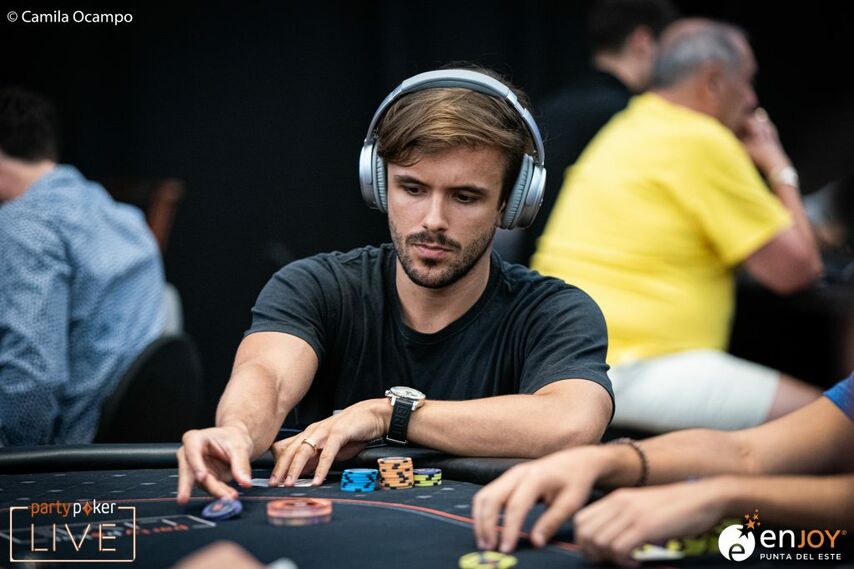
– Poker is very popular in Brazil now, but it wasn’t always like that. When you started, was there a negative attitude towards him? How did you decide to make this your profession?
– When I first came to a poker club near my home, I immediately noticed that people who didn’t know how to play were winning there. Obviously, they didn't even suspect that the game could be worked on. I started playing live tournaments, played very tight, and won a lot. Online, I also immediately realized that I could make money. At that time, if you knew some basic things, you could play profitably, and with a little more advanced knowledge, you could win very decently.
– Now the attitude towards the game has noticeably improved, but winning at poker has become much more difficult. What do you tell young players who come to you for advice?
– I am telling the truth. I'm not bragging about my successes, Brazil is still a very poor country and it's not safe. I explain that there is no easy money in poker, but you can achieve success if you work hard and dedicate yourself to the game. The problem is that almost all the young Brazilians I talk to want to earn a lot right away. Apparently, poker has such an image – quick and easy money. Such players then love to blame bad luck for their failures. Nobody listens about variance, and in tournaments, it is even stronger than we suspect. For me, poker is a school, including life. Thanks to the game, I learned to calmly accept failures, which is also very difficult for many to understand. I’m definitely not pretending that poker is some kind of fashionable and glamorous activity where you can immediately get rich.
I also noticed that for some reason many people think that the main thing is to reach the high stakes, and then the money will flow like a river. But at the highest limits, it will only become more difficult. If you are not ready for new challenges, it is better to stay on average. Personally, right now I am going through the most difficult period in my career when I play the most expensive tournaments. But 12 years of gaming experience helps me stay calm and cope with any streaks with dignity.
– How old are you?
– 30.
– You recently had a son, did this somehow affect your poker career?
– My son is three years old and my wife takes care of all the housework. I am very lucky with her. We were also together in Vegas, and I was able to completely focus on poker for two months. And she was alone with the child for all 60 days. Any parent understands how difficult this is. Her role in my success cannot be overestimated. We spent every day before the start of the tournaments together and after flights, I immediately returned home. I didn't even have time to meet my friends for dinner. We rented a house with two bedrooms, and if I arrived too late, I went to the second one so as not to disturb anyone.
– Did you play every day?
– Yes, we agreed on this in advance, I promised that at the end of the year, there would be no poker. And the World Series for us is like the Olympics for athletes.
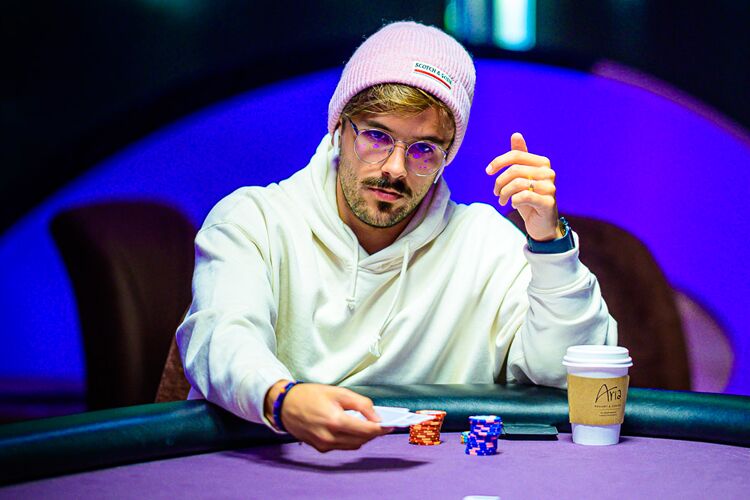
– You play all the games, in September you even won two WCOOP tournaments in one day. Do you consider yourself primarily a specialist in Hold’em or mix games?
– Definitely in Hold’em. I started playing mixed games only in 2014 when I took first place in the PocketFives rankings. At that time it was the best year of my career. Only in 2021 did I surpass it. I won a lot of money, decided that I would no longer grind every day, and took some time to learn new games. It was very interesting to me. I decided to start with PLO and went to play $2/$4 cash. There I immediately saw how difficult it was. But I couldn’t play lower, I wouldn’t have had enough motivation. This training turned out to be expensive, I lost 100 buy-ins, then I played for a while and only after eight months I started winning. After that, I took on the rest of the games. There were no solvers then, the information was very limited. That's why I turned to coaches. I was especially lucky with Omaha, the lessons were very expensive – £400 or £500 per hour, but it was worth it. Despite the lack of solvers, my coach focused on GTO. Moreover, he himself hardly played, he liked solving games, a real genius. Strong American regulars helped me master limit games. And when the software appeared, I started working a lot on my own, and this also helped in all formats.
– I think you will agree that solvers are not very convenient for beginners, although many simulators with friendly interfaces have now appeared. What advice would you give to ordinary players who are wondering how to develop in poker?
– Depends on the goals. Some want to become professionals, while others are satisfied with the role of an amateur playing for profit. The second one I would recommend is the book “Exploitative Play in Live Poker” by Alex Fitzgerald. There are quite a lot of simplified strategies that are definitely enough for live play. Amateurs don’t have time to understand the software on their own, so they need ready-made tips on how to play in certain spots. This is exactly how his book is structured. Naturally, it is impossible to analyze all the spots in one book, but it will give a good idea of the overall strategy. I think this will definitely be enough for live and micro-limits, perhaps even for mid-stakes, although now online they are not so simple. I understand that it’s strange to recommend poker books these days, but I really liked this one.
For beginning professionals who already work in software, I would advise using simplified strategies – always use one continuation bet size and so on. First, you need to have a good understanding of the basic theory. As I already said, working in Hold'em solvers helped me in limit games as well. In Vegas, I constantly see serious mistakes made by my opponents, and they are precisely due to the fact that they do not understand the basics of poker and play by intuition.
– Judging by Hendon Mob, you started playing in April 2010. Was this your first experience?
– No, by that time I had been playing only online for two years and tried all formats – cash, SNG, and only then settled on tournaments.
– In 2011, you took second place in the main event of the BSOP series and won $109k. By that time, did you already have a decent bankroll or was this a significant increase?
– Very solid. I remember very well how juicy the fields were at the Brazilian series back then. I was a huge chip leader at the final table, but I started going crazy and lost heads-up to my friend. This was one of the first tournaments in my life.
– Tell us about bankroll management. Did you stick to strict rules or did you take shots and take risks?
– When I was 18, I lost my entire bankroll, I felt terrible, given the financial state of my family. I promised myself that this wouldn't happen again. But I was lucky that I went through this at the very beginning of my career and learned a useful lesson. Now I stick to a very tight bankroll management, but I try to always play for myself. Only for the most expensive tournaments do I exchange shares with friends. It seems to me that in Europe you can afford to take a little more risk. If you don't succeed in poker, you can always find a decent job. You won't get rich with it, but you can lead a decent life with a house and a car. We don’t have such an opportunity in Brazil, I can’t even imagine what I would do if it weren’t for poker. Throughout my career, I constantly saved money, so it was only 12 years later that I moved up to high stakes.
– In 2019 you won your first bracelet, tell us about it.
– Naturally, I was happy, I couldn’t even dream about this. I don't play poker for trophies, but they are always nice. I think in my old age I will remember such moments with pleasure. And this tournament seemed to be specially created for me because it is Stud Hi-Lo and Omaha Hi-Lo that I consider my best limit games.
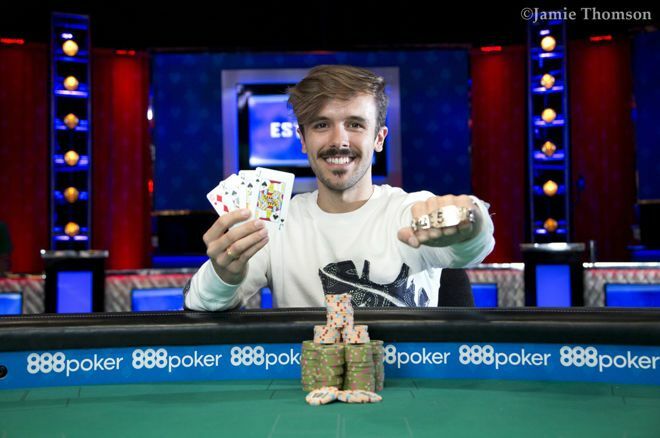
– That same year you took 28th place in the main.
– Many people say that the main event has a special energy, and I completely agree with this. This is especially noticeable in the first days when people glow with happiness that they have the opportunity to play such a tournament. I think every player dreams of going far in the main. I played completely on my own and made it to the final four tables, the whole family was rooting for me, but it didn’t work out in the end.
– Did you bust out on a cooler?
– Yes, I had 12bb left, which is very little for the main, I was dealt AK against AA.
– In 2020, you won a bracelet online, and in a tournament for 4,356 people. How can you beat so many opponents?
-- On the first day, I didn’t pay attention to this table; it was somewhere in the farthest corner of the screen. Then we got into the money, I started to get excited, I began to follow the action more closely and entered the final table as the chip leader. I was lucky that there was a week-long break before the final table, and I was able to prepare well. I haven't played Omaha tournaments for a long time and didn't know how to build ranges depending on ICM, but I managed to fill in a lot of the gaps.
– How many tables do you usually play?
– Now I only play expensive tournaments, so I usually have 6-8 tables open. I try to play only those tournaments in which I can concentrate 100%. I don’t add tables for the sake of screen space and I simply don’t register for a tournament that doesn’t interest me. This approach has another advantage. When the software first appeared, I immediately discarded all my previous experience and tried to completely copy the solvers. I don't recommend anyone to do this. Now I remembered my intuition again, and this had a positive effect on the results. Naturally, I continue to work in solvers every day; I like it even more than playing. But I try to balance, so I don’t play so many tables.
– I saw you with a guitar several times. Does music hold a special place in your heart?
– Now it’s just a hobby. But there was a time when I played in bars for money. I seriously studied guitar and even took vocal lessons, but that was a long time ago. Now I only play for friends.
– Tell us what the current status of poker is in Brazil.
– All online gambling is in a gray area. But poker is incredibly popular, as can be seen from any major series. It looks like poker will be legalized this year, but I'm not sure it will be good, rather the opposite. We don’t have live casinos at all, but there are huge poker clubs where everything is organized at a very decent level.
– Will they recognize you there?
– On episodes all the time. Brazilians love poker very much. In Vegas we talked with Niklas "Lena900" Astedt, and he admitted that even he constantly receives messages from Brazilian fans. That’s right, he’s a real star here. I told him that if he ever comes to the Brazilian series, he simply won’t get to his seat; every table will want to take a photo with him. We have a special relationship with players, even in Vegas there is no such thing. There they can stop me to exchange a few words, and at home, famous players are treated as real idols. But I even enjoy it.
– How do you take a break from poker?
– In Vegas, after tournaments, I like to drink good wine with dinner with my wife. At home, I surf, play the guitar, or play chess.















